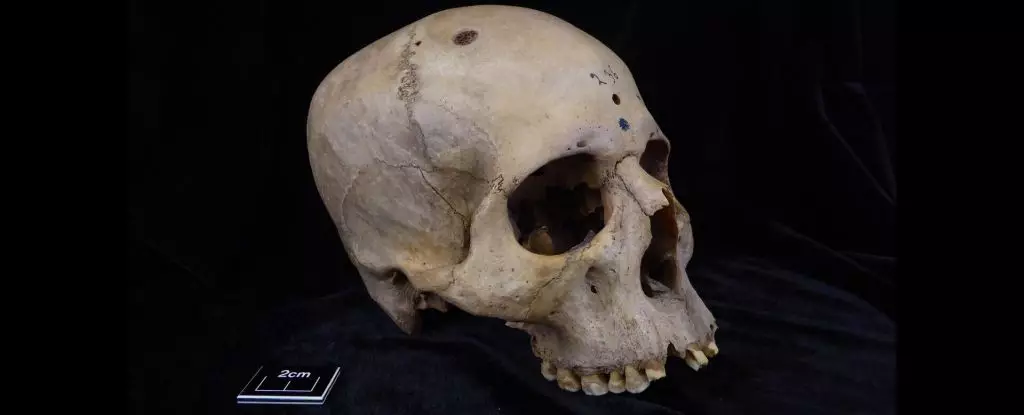The ancient Egyptians were known for their sophistication and advancements in the field of medicine, and we are still learning from them thousands of years later. However, cancer was one ailment that posed a significant challenge for them, as it does for us today. Recent findings from the University of Cambridge’s Duckworth Collection shed light on the ancient Egyptians’ attempts to treat cancer and other injuries.
One of the skulls in the collection belonged to a male individual who lived in ancient Egypt between 2687 and 2345 BCE. He passed away in his early 30s and his skull exhibited around 30 lesions, consistent with metastasized carcinoma. Upon closer examination, researchers discovered cut marks on the edges of the lesions, suggesting that an ancient surgeon had attempted to remove the neoplasms using a metal implement. Unfortunately, these marks showed little to no healing, indicating that the surgery took place around the time of death.
The second skull in the collection belonged to a female individual who lived between 663 and 343 BCE. She was over 50 years old when she died, and her skull revealed a large lesion resembling osteosarcoma or meningioma. Additionally, healed injuries on her skull indicated that she had survived sharp-force trauma and blunt-force trauma at some point in her life. These injuries, although well healed, raised questions about the role of women in warfare during antiquity.
While the male individual’s skull showed signs of a surgical intervention related to cancer, the female individual’s skull did not display any evidence of treatment for her cancerous lesion. Despite the attempts made by the ancient Egyptians to treat cancer, the cure remained elusive in both cases. The advanced state of the cancer in both individuals suggested a link to mortality that could not be ignored.
The discoveries from the Duckworth Collection provided a new perspective on ancient Egyptian medicine and their interactions with cancer. They also prompted reflections on the prevalence of cancer in antiquity and the role of women in conflicts during the ancient era. While the ancient Egyptians’ efforts to combat cancer were commendable, the challenges they faced in treating the disease underscore the complexities of battling cancer throughout history.
The study of the two skulls from the University of Cambridge’s Duckworth Collection offered valuable insights into the ancient Egyptians’ fight against cancer. Despite the limitations and shortcomings in their treatments, the discoveries serve to deepen our understanding of the history of medicine and the challenges posed by cancer in ancient times. The ongoing research and analysis of ancient remains continue to shed light on the past and inspire new perspectives on our global medical heritage.


Leave a Reply